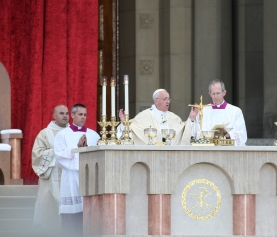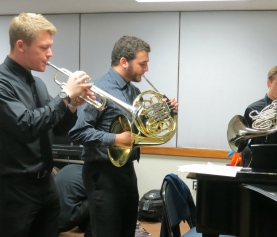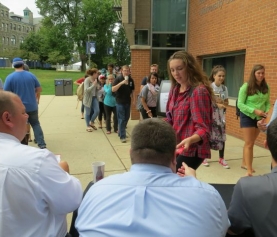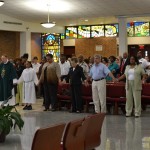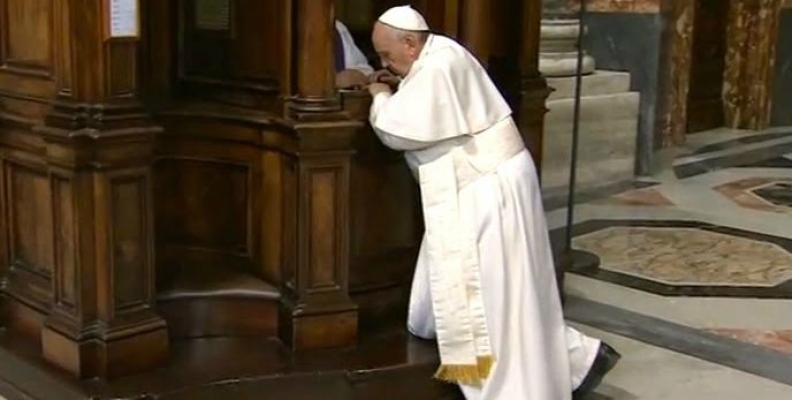
Chad Pecknold: The Courage of Confession
Our family is in the habit of going to confession together. Each of us confesses individually, of course, but we know we are in it together.
I’ve never told anyone this before, but going to confession as a family heightens my sense that there’s a kind of thrill in it, like diving into the deep end for the first time. We sometimes joke that it is like “spiritual bath time” in which we confess the filth we’ve brought upon ourselves, and Christ washes us with his Word. The kids get the point, but that metaphor doesn’t fully capture either the dread or the thrill of confession.
Last February, Pope Francis asked us all to ask ourselves: “‘When was the last time I went to confession?’ And if it has been a long time, don’t lose another day! Go, the priest will be good. And Jesus will be there, and Jesus is better than the priests — Jesus receives you. He will receive you with so much love! Be courageous, and go to confession.” Pope Francis understands the dread and the very thrill of it because he understands that Jesus is there in the sacrament of confession.
When Pope Francis says “Be courageous, and go to confession!” he captures the way in which it is a sacrament of conversion, “a radical reorientation of our whole life, a conversion to God with all our heart, an end of sin, a turning away from evil, with repugnance toward the evil actions we have committed.” (Catechism, 1431) It is a journey out of a dangerous place, which has been set up in our souls, through what we have done and what we have failed to do. And it feels precarious.
To switch analogies, the sacrament of confession is like a heart transplant. As the Catechism also states, “The human heart is heavy and hardened. God must give man a new heart.” Just to examine our consciences, to tell the truth about ourselves can quake our hearts. In the recent revelations about Planned Parenthood, we have all been horrified at the callousness of the human heart towards America’s secret Holocaust. Every heart should be shaken, every person moved by the horror and weight of this terrible sin upon us. As we watch the videos, many of us might not be aware of how personally this affects millions of women, millions of mothers whose own souls have been “war torn” by the scourge of abortion. But for them, as for all of us, there is hope. “The human heart is converted by looking upon him whom our sins have pierced.” (Catechism 1432)
Abortionists call the baby’s head a “calvarium,” or skull in Latin. In this way, every aborted baby points us to Christ our head, crowned with thorns. As Pope Francis says, “Every child not allowed to be born, but unjustly condemned to be aborted, has the face of Jesus Christ.” It’s understandable that people would want to look away from the horror and weight of this terrible sin of abortion. But looking away only seizes up our hearts further, drags us deeper into a heart of darkness. Rather, to those whose hearts ache from the sin of abortion, Pope Francis will also say to our sisters in pain, “Be courageous, go to confession!” There is hope after the sin of abortion, just as there is hope for all of us whose hearts have been scourged by sin. To be a Christian is to confess, “I am a sinner.”
And confession is simply telling the truth about ourselves before God. What’s both dreadful and thrilling about confession is that we become our own prosecutors, and God hears our case. Weighed down by our sins, aware of the damage they do, our hearts are contrite, and we suddenly hear something amazing breaking through the screen. Through a priest of Jesus Christ we hear words flowing from Calvary: Holy words of forgiveness, divine grace, and mercy flow into our souls so that our contrite hearts can be raised to new life for friendship with God and our neighbor.
Pope Francis tells us not to grow weary of going to confession. Whatever we have done, whatever we have failed to do, something radical happens in confession: “God always forgives us [there]. He never tires of this. It’s we who get tired of asking for forgiveness. But He does not tire of pardoning us.”
Don’t be surprised if the Holy Father brings with him a sense of danger and adventure. And don’t be surprised if he tells you to “Be courageous! Go to confession.”
— Chad Pecknold is an associate professor of systematic theology at The Catholic University of America School of Theology and Religious Studies.


